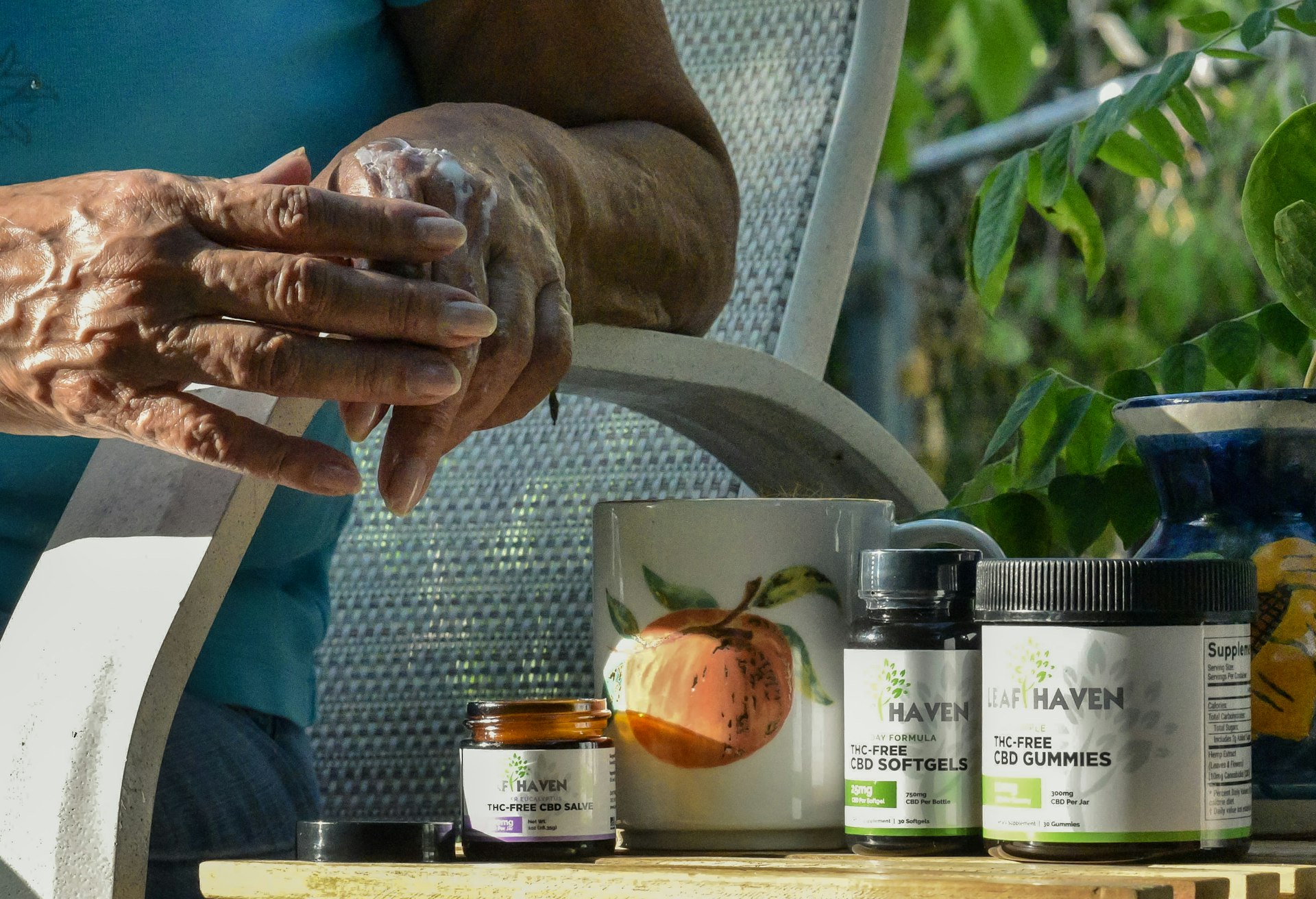Unlocking Better Health: A Practical Guide to Wellness Through Natural Supplements

Photo by Mynor Miranda on Unsplash
Introduction: The Evolving Role of Natural Supplements in Wellness
The pursuit of wellness has increasingly led individuals to explore natural supplements as a means of supporting health, vitality, and longevity. While a balanced diet, regular physical activity, and mindfulness remain foundational, scientific advances suggest that certain natural supplements may provide additional benefits for specific health challenges and age-related changes [3] . However, the effectiveness, safety, and best practices for supplement use require careful consideration and evidence-based guidance.
Understanding Natural Supplements: What Are They?
Natural supplements encompass a broad range of substances derived from plants, minerals, and other natural sources. Common categories include herbal extracts (such as ginseng or garlic), vitamins, minerals, and nutraceutical blends. These products are used to maintain general health, target specific conditions, or promote healthy aging [2] . For example, saw palmetto is often used for prostate health, while garlic is valued for cardiovascular support and immune modulation. The U.S. Food and Drug Administration (FDA) regulates supplements differently from prescription drugs, so consumers must be diligent in researching products and understanding the evidence supporting their claims.
Evidence-Based Benefits: What Does Research Show?
While some natural supplements have demonstrated measurable benefits in clinical research, others require further investigation. A 2025 study on the Cel System supplement-a blend of plant compounds, vitamins, and antioxidants-showed that participants experienced reduced biological age, improved muscle strength, and better body composition after a year of daily use. This supplement appeared to positively influence DNA methylation, stress response genes, and immune cell balance, all of which are associated with healthier aging [1] .
Other supplements, such as:
- Ginseng : Used to boost energy and immune function; some evidence supports its role in reducing fatigue and regulating immunity [2] .
- Garlic : Extensively studied for its cardiovascular and antioxidant effects. Research indicates it may help lower cholesterol and blood pressure [2] .
- Black Cohosh : Primarily used to manage menopausal symptoms; studies suggest it may modulate estrogen receptors and help with hot flashes [2] .
It is important to note, however, that while certain supplements show promise, the scientific community emphasizes the need for larger, controlled studies to confirm these effects and determine optimal dosage and safety [3] .
Practical Steps: How to Integrate Natural Supplements into Your Wellness Plan
To maximize benefits and minimize risks, follow these actionable steps:
- Assess Your Needs : Evaluate your current health status, dietary gaps, and wellness goals. Consider consulting a licensed healthcare provider or a registered dietitian to identify specific deficiencies or health targets.
- Research Evidence : Use reputable sources such as the National Institutes of Health Office of Dietary Supplements for up-to-date research on supplement efficacy and safety.
- Choose Quality Products : Select supplements from established brands that offer third-party testing. Look for seals from organizations like NSF International or USP Verified to ensure product quality.
- Start Slowly : Introduce one supplement at a time so you can monitor effects and minimize the risk of adverse reactions. Document any changes in your health or side effects.
- Monitor and Adjust : Reassess your supplement regimen periodically. Discuss ongoing use and possible interactions with your healthcare provider, especially if you take prescription medications or have chronic health conditions.
In cases where specific health conditions are targeted (such as menopause, cardiovascular health, or immune support), your provider can help tailor supplementation to your unique needs.
Real-World Example: The Cel System Study
A recent clinical trial published in 2025 evaluated the effects of the Cel System supplement on 51 adults aged 54-84 over one year. Participants who incorporated this plant-based supplement-alongside daily walking and mindfulness-showed improvements in muscle strength, lower body mobility, and reductions in body weight and waist circumference. Epigenetic testing revealed a slowing in biological aging, and changes in immune cell composition suggested enhanced resilience [1] . While promising, the study authors caution that further research with larger, controlled groups is needed to confirm these results and establish long-term safety.
Potential Challenges and Safety Considerations
Despite the potential benefits, natural supplements are not universally beneficial and can sometimes pose risks. Some products may interact with prescription medications, cause allergic reactions, or be unsuitable for individuals with certain health conditions. For example, ginseng may affect blood pressure or blood sugar, and black cohosh is not recommended for all women with hormone-sensitive conditions [2] . Supplements are not a substitute for prescribed medical therapies or a balanced diet.
To minimize risks, always:
- Consult a healthcare professional before starting any new supplement, especially if pregnant, nursing, or managing chronic disease.
- Purchase only from reputable sources with clear labeling and quality assurance.
- Monitor for side effects and discontinue use if adverse reactions occur.
Alternative and Complementary Approaches
If you are unable or unwilling to use natural supplements, several complementary strategies can support wellness:
- Adopt a diet rich in whole foods, fruits, vegetables, and lean proteins.
- Engage in regular physical activity tailored to your fitness level.
- Practice stress-reduction techniques such as mindfulness, yoga, or meditation.
- Ensure adequate sleep and hydration.
These foundational habits can often provide substantial health benefits with or without supplementation [3] .
How to Find Reliable Information and Access Quality Supplements
To access reliable information about natural supplements, use established resources such as:
- The NIH Office of Dietary Supplements for fact sheets and consumer guidance.
- The U.S. Food and Drug Administration website for safety alerts, recalls, and regulatory updates.
- Consult your local pharmacist or healthcare provider for personalized recommendations.
When purchasing supplements, ask for third-party testing documentation and avoid products with exaggerated claims or unclear ingredient lists. If you need individualized advice, registered dietitians and integrative medicine practitioners can offer tailored support. You may also find consumer reviews and safety information through organizations such as Consumer Reports or NSF International, both of which maintain up-to-date supplement safety databases.
Key Takeaways
Natural supplements may offer a valuable adjunct to a comprehensive wellness strategy, especially for individuals seeking to support healthy aging, boost immunity, or address specific health concerns. However, benefits vary by individual and supplement type, and safety must always be prioritized. Consult with a healthcare professional, rely on evidence-based resources, and adopt a holistic approach that emphasizes balanced nutrition, physical activity, and mindful living.
References
[1] Aging-US (2025). Natural Supplement May Decrease Biological Aging and Improve Muscle Strength.
[2] StatPearls (2024). Herbal Supplements – Clinical Overview.

Photo by Elsa Olofsson on Unsplash
MORE FROM weirdsearch.com













